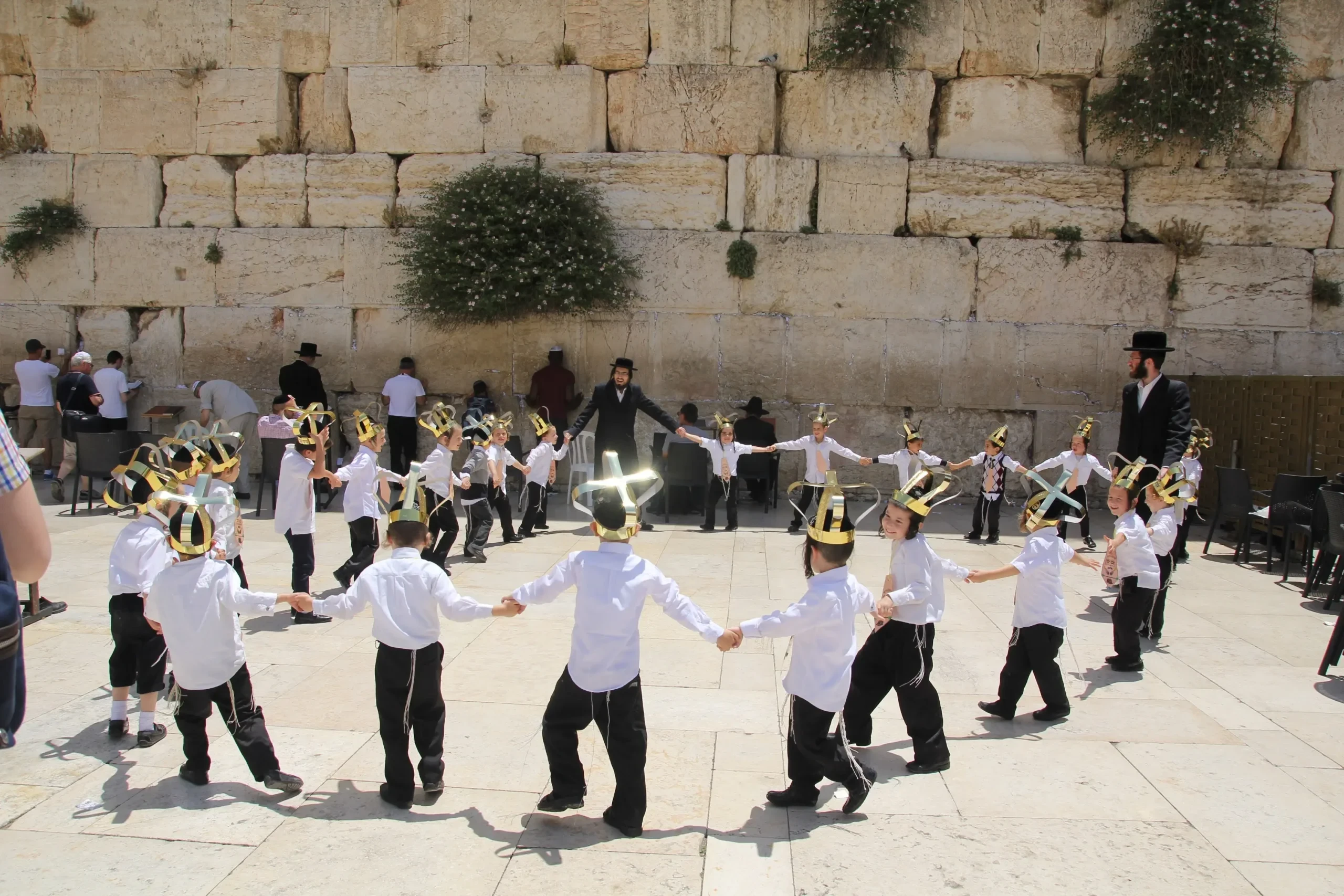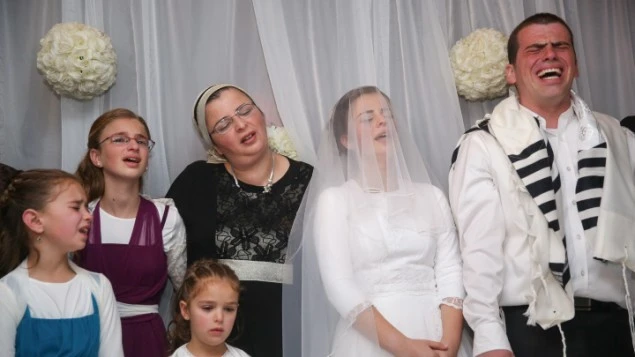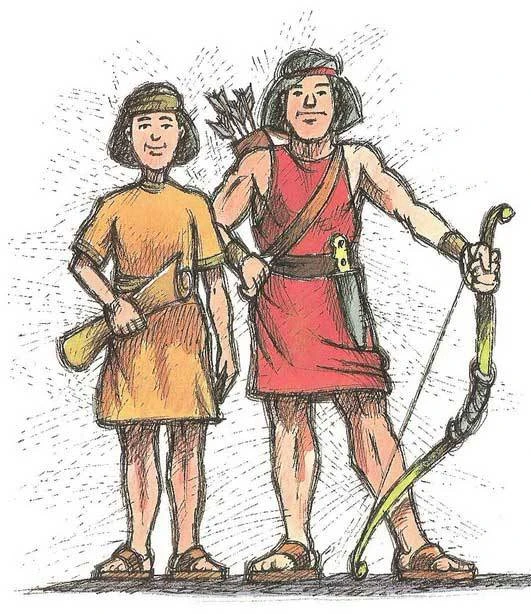Stress No More
This Lesson Can Change Your Life
Meor Einayim Vayishlach
- November 22, 2015
- |
- 10 Kislev 5776
Rabbi YY Jacobson
7455 צפיות- 6תגובה
- התקשרות
האזינו לכיתה בטלפון
שִׂיחָה +1 (845) 201-1933
כשתתבקש, חייג את מספר הזהות שלהלן.
2603 MP3 MP4 דפי מקורות - העתק הטמעה
סיכום השיעור:
Do you feel you have obstacles in life which hinder your emotional and spiritual wholesomeness? This class can change that forever. It maintains one of the fundamental ideas of Chassidus: Your life has no obstacles, only opportunities to experience intimacy with yourself and G-d.
But to internalize this, we need to experience a paradigm shift. We have to put on a new pair of “glasses” through which to view our world.
This class, studying a text of Maor Einayim by the Chassidic master, Rabbi Nachum of Chernobyl (1730-1797), explores the tragic story of King Manasseh who ridicules two biblical verses, one from Vayishlach and one from Vayeitzei. We explore the stories of Timnah, King Menasseh, Yosef, and how to view all thoughts, instincts, emotions, encounters, and experiences as messages from G-d trying to bring us closer to the core of reality.
תגים
קטגוריות
Meor Einayim Vayishlach
Rabbi YY Jacobson
- November 22, 2015
- |
- 10 Kislev 5776
- |
- 7455 צפיות
שיעורים קשורים
אנא עזרו לנו להמשיך בפעילותנו
הרשמה לקבלת תוכן (באנגלית) עדכני מאת הרב יוסף יצחק ג'ייקובסון
צרפו חברים ומשפחה לקבוצת הווסטאפ שלנו
צרפו חברים ומשפחה לקבוצת הווסטאפ שלנו








אנא השאירו את תגובתכם למטה!
Chani -6 שנים לִפנֵי
השיבו לתגובה זו.סמן את התגובה הזו.
Anonymous -6 שנים לִפנֵי
לכאורה נראה שזה אפילו לאחרי שחטא, שהרי סו"ס התכלית היא תשובה, ועפ"ז מובן מה דזדונות נעשו לו כזכיות. ועי' תניא פרק ז. לקוטי שיחות חלק ה פרשת לך. חלק יז פרשת אחרי מות באריכות גדולה.
השיבו לתגובה זו.סמן את התגובה הזו.
Anonymous -7 שנים לִפנֵי
skipping the stories of Bereshis
to support that...
there are some stories that one not allowed to translate like it says in Megila
השיבו לתגובה זו.סמן את התגובה הזו.
Anonymous -7 שנים לִפנֵי
vayotsi hahutso
vayotsi hahutso also mentioned by Avrom
יוצא אתו החוצה: לפי פשוטו הוציאו מאהלו לחוץ לראות הכוכבים, ולפי מדרשו אמר לו צא מאצטגנינות שלך שראית במזלות שאינך עתיד להעמיד בן, אברם אין לו בן, אבל אברהם יש לו בן. וכן שרי לא תלד, אבל שרה תלד, אני קורא לכם שם אחר וישתנה המזל. דבר אחר הוציאו מחללו של עולם והגביהו למעלה מן הכוכבים, וזהו לשון הבטה מלמעלה למטה:
same idea
very interesting
thank u
השיבו לתגובה זו.סמן את התגובה הזו.
Anonymous -7 שנים לִפנֵי
whereby Avrom, Hashem needed to take him out of his limitations
and by Yosef he himself "Vyonos" run away, was able to lift himself up without anyone's help
Maybe that's why Timna was rejected by Avrohom and Yitzchok. There ware not on Yosef's level.
השיבו לתגובה זו.סמן את התגובה הזו.
Shmuel C -8 שנים לִפנֵי
Dear Rabbi,
I thank you for a fascinating perspective into the vision of our infinite Torah, and Hashems loving embrace, through His saintly leaders of the generation.
I find this idea (our most depraved instincts mirroring our portal into our infinite potential of experiencing the divine) concretely alluded to in a profound analysis of the Talmud in Shabbat 49b, where a Talmudic scholar, Reb Yosef, questions the calculation for our resolution of the 39 forbidden labors being inferred from the amount of times it says "melacha" -labor/activity, in the Torah.
He particularly questions the story of his namesake "Yosef the righteous" entrance to his masters home to do his "Work" (Talmud Sotah 37 "commiting promiscuity").
How in the world do our saintly Rabbis in attempt to construct a juxtaposition, compare the story of Yosef on the verge of falling into sin, to the most Gd given-gift to the world: Shabbos, its particular details as how to guard and abstain from the forbidden "activities".
Furthermore, Guarding the Shabbos bestows upon the entire world the radiance and ambiance of the Divine presence in our physical reality, the exact opposite of Yosefs story which dispels any vestige of Gdly supervision?!!!
The answer was beautifully explained in the class; in Short, our darkest trials are the very threshold to experience the most intimate of the Divine embrace, if we choose to "see" the opportunity in the difficulties.
Thank you Rabbi!!!
השיבו לתגובה זו.סמן את התגובה הזו.
Mendel Zilberberg -9 שנים לִפנֵי
Ty -- In thinking about your Shiur -- It is possible that with respect to Shemesh and ( thereafter) Mogen -- both Hashems attributes of Din and Chesed are invoked to signify that the attribute amay depend on how we deal with it -- either as a challenge or an opportunity
השיבו לתגובה זו.סמן את התגובה הזו.
Rabbi YY Jacobson -9 שנים לִפנֵי
העירני חכם אחד ידידי הרד"ל שי', דאמרו חז"ל שישנם ה' חטאות המתות, ואלו הם: ולד חטאת, תמורת חטאת, חטאת שמתו בעליה, נתכפרו בעלי באחר, עיברה שנתה. והנה איתא בספרים שנוטריקון של "ותמנע" היא: ולד חטאת, תמורת חטאת, מתו בעליה, נתכפרו בעליה, עיברה שנתה. והנה ענין החטאת הוא לשוב לה' על החטא אשר עשה, והיינו, לא לראות את החטא כנפילה אמיתית ונצחית, אלא להבין שיש אפשריות להפך את הענין ולשוב אל השם. ועוד יותר, עומק ענין התשובה הוא להבין שגם החטא אינו אלא מכשיר לתשובה, כמאמר ר"ל ביומא פו שזדונות נעשו לו כזכיות, וכמבואר בתניא פ"ז, ע"ש. וחטאות המתות מסמלות קרבנות שאי אפשר יכול להקריב, ולכן הם מתות, וזהו ותמנע, האמונה שיש מניעה אמיתית ושיש חטאת שאי אפשר להביא קרבן ולשוב עלי'. וזהו תמנע, מכשול שהאדם חושב שאי אפשר לקום ממנה.
השיבו לתגובה זו.סמן את התגובה הזו.